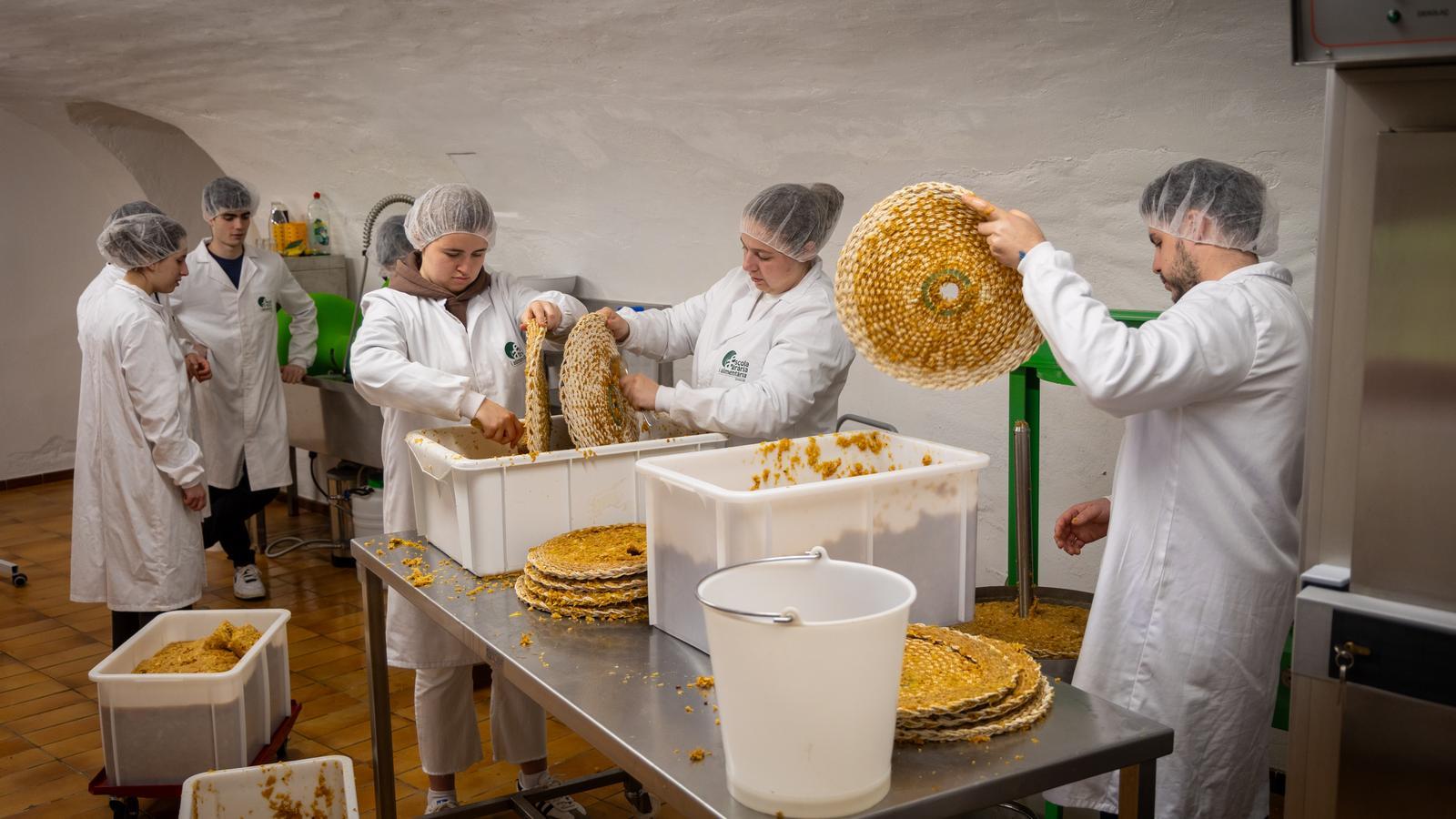The Empordà and Espiells Agricultural Schools are open to receiving more registrations.
While the EAA of Empordà is a benchmark for its training in the agri-food industry, the Mercè Rossell i Domènech School of Viticulture and Oenology stands out for its training in viticulture.

The primary sector is key to the sustainability of our region. In a time marked by climate change and its ravages, the lack of generational leadership in the agriculture, livestock, and fishing sectors, and the neglect of forest management, it is necessary to lay the foundations to ensure a better future. This involves encouraging young people to train in these fields at Agricultural Schools (EA).
The Agri-Food Training Service (SFA), managed by the Department of Agriculture, Livestock, Fisheries, and Food of the Generalitat (DARPA), is a benchmark in training and professionalization in the agri-food, forestry, and rural sectors. This public network It currently has 15 training centers distributed throughout Catalonia, each with its own specific specialization.
Last May, the deadline for pre-registration for intermediate and advanced vocational training courses at Catalan Agricultural Schools closed. This process will culminate on September 4th with the formalization of the third and final round of registrations for the 2025-2026 academic year. However, some schools still have vacancies, such as the Empordà Agricultural and Food School in Monells (Baix Empordà), and the Mercè Rossell i Domènech School of Viticulture and Oenology in Espiells (Alt Penedès).
HeEAA of Empordà It is a leading center for training in the agri-food industry, especially in quality and production processes. The school offers the advanced training course "Processes and Quality in the Food Industry," which prepares senior technicians capable of managing and controlling production processes, implementing quality systems, and ensuring regulatory compliance in the food industry.
The course consists of two academic years, a total of 2,000 training hours. During the second year, dual training is available, which consists of completing part of the training course content in a food company. If the dual route is not followed, internships are carried out in companies (Training in Workplaces) and a project is carried out at the school.
This specialization is highly valued by the sector, which requires qualified professionals to guarantee food safety and product innovation.
For its part, the Mercè Rossell i Domènech School of Viticulture and Oenology It combines technical training with specialized professional approaches. It offers the intermediate CFGM (General Training) in Olive Oil and Wine Production, similar to that of the EA Gandesa (Agricultural School of Agriculture), as well as two advanced training courses: the CFGS (General Training) in Viticulture, which trains specialists in viticulture management and innovation, and the CFGS (General Training) in Marketing and Advertising with a professional profile in products, professionals, and communication strategies adapted to the sector.
This combination makes the school a key center for preparing well-rounded professionals adapted to the current demands of the wine market.
All centers in the Agricultural Schools network work in coordination to optimize resources, share knowledge, and guarantee high-quality training. The program offers practical and personalized training in small groups, specialized teaching staff, collaboration with companies in the sector, and technical visits to farms and agri-food industries. Furthermore, these programs have a high job placement rate, given the growing demand for qualified professionals in the sector.
Continuing education and internships abroad
In addition to the training cycles, the Agricultural Schools offer a wide range of continuing education courses and technology transfer workshops. In 2024, more than 8,700 students participated in these courses.
In addition to all this, there is theMentoring for Young Farmers and Farmers, for young people between 18 and 40 years old who apply to join an agricultural company and for initial installation assistance, as well as the Open Mentoring program to support people of all ages in their integration into the sector.
Furthermore, with the recent designation of five groups of Agricultural Schools as integrated vocational training centers, the educational offer is expanded beyond initial vocational training. In this way, the centers can offer professional certificates, accredited training aimed at people who want to acquire or improve specific professional skills. This training allows for requalification (reskilling) or the improvement of the qualification (upskilling), and adapts to different moments and challenges of working life.
Finally, and as a future project, the Agricultural Schools are focusing on the internationalization of their studies. Several projects are currently underway to allow students to travel to other countries to do internships or stays in companies and learn about other realities of the agri-food world.
